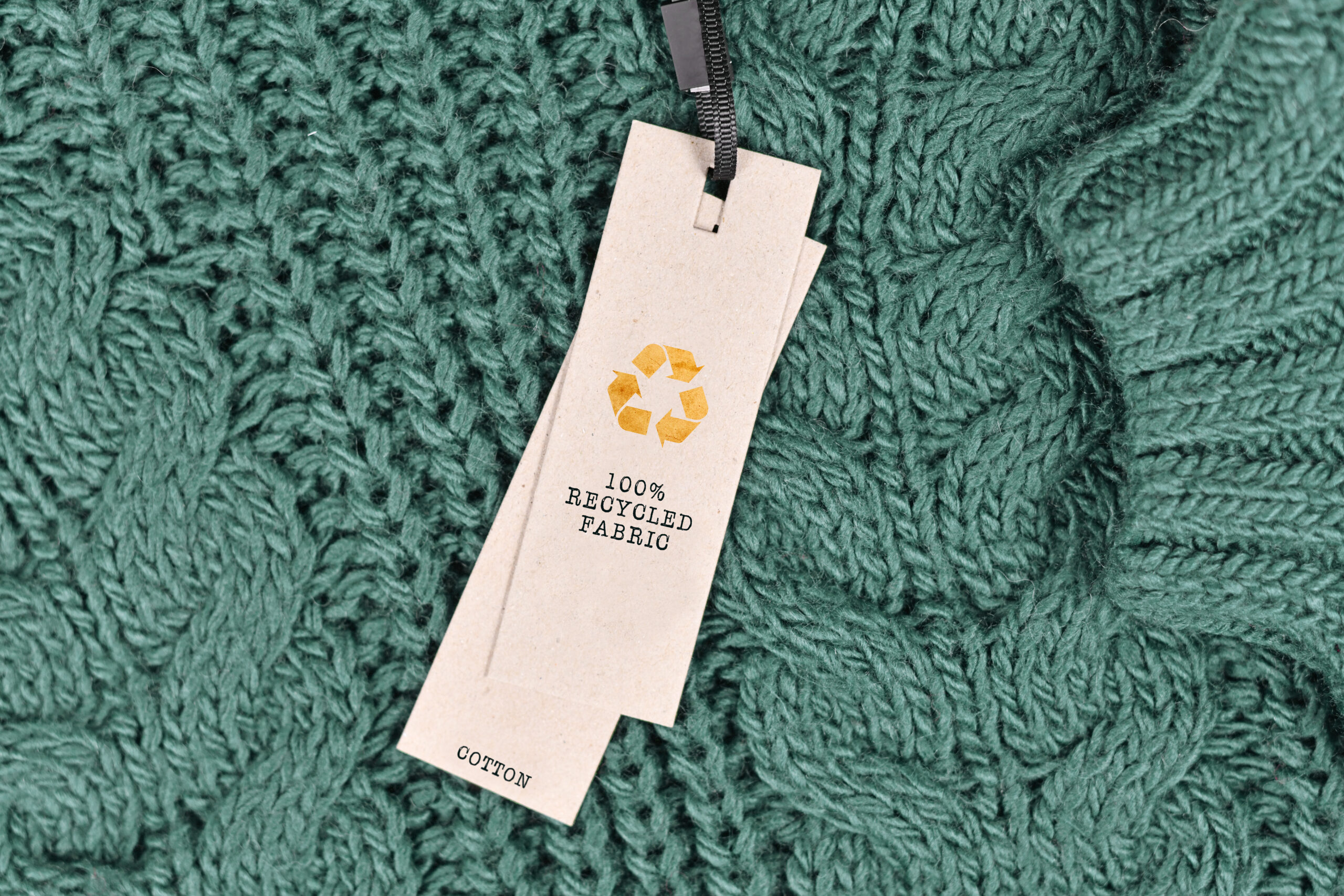Exploring the Increase of Cape Town Sustainable Fashion Brands
Remain Ahead of the Curve by Discovering Ingenious Style Fads
In an industry as dynamic as style, staying in advance entails even more than simply following current patterns-- it requires an expedition of advancement. Smart textiles, for example, are changing garments right into practical masterpieces, while 3D printing is changing design processes with its personalized, waste-reducing capabilities. As sustainability comes to be a foundation, technologies like environmentally friendly products and round style techniques are reshaping ecological obligation - Cape Town Sustainable Fashion. Moreover, the convergence of technology and style proclaims a brand-new era of customer interaction. Exactly how, after that, can these emerging fads redefine the future of style, and what effects do they hold for brand names looking for to grow in this progressing landscape?

Embracing Smart Textiles
Over the last few years, the fashion business has actually witnessed a transformative change with the integration of smart fabrics, a cutting-edge innovation that mixes modern technology with textile. This advancement represents not just a fusion of appearances and performance but additionally a significant leap in the direction of sustainability and customization in vogue. Smart fabrics, likewise understood as e-textiles, installed innovative electronic devices such as sensors and conductive threads within the material, allowing garments to communicate with the setting or the wearer.
These textiles are made to keep track of physical parameters, such as heart price or body temperature level, offering real-time health analytics. Past health applications, wise textiles are also being used for adaptive apparel, which can change shade or pattern in feedback to environmental stimuli, hence providing a dynamic style experience.
Furthermore, the advancement of energy-harvesting textiles that produce power from motion or sunshine is leading the way for self-dependent wearable technology. This innovation is appealing to eco aware customers and designers intending to reduce the environmental impact of style. As research and growth in this field breakthrough, wise fabrics are expected to end up being significantly prevalent, reshaping the landscape of modern fashion with their multifunctional capacities.
The Rise of 3D Printing
Transforming the manufacturing landscape, 3D printing has emerged as a game-changer in the fashion business. This advanced technology has enabled designers to push the limits of creativity, producing detailed and tailored garments that were formerly inconceivable. By leveraging digital layout and additive manufacturing, 3D printing assists in the development of complicated geometries and patterns, allowing developers to explore brand-new textures and frameworks.
A notable benefit of 3D printing in style is its capability to generate on-demand, decreasing waste and reducing inventory needs. This efficiency not only optimizes manufacturing processes but likewise permits for rapid prototyping, making it possible for designers to bring their visions to life in a much shorter timeframe. Additionally, 3D printing sustains customization somewhat unrivaled by typical methods, using one-of-a-kind designs and personalized fits customized to specific customer choices.
The increase of 3D printing has additionally equalized fashion, making it accessible to emerging developers that can now produce premium items without significant financial investment in standard manufacturing infrastructure. As modern technology proceeds to development, the apparel industry is poised to harness the complete capacity of 3D printing, exploring new products and techniques that will certainly redefine exactly redirected here how style is conceived and created.
Lasting Fashion Technologies
As the apparel industry faces journalism demand for ecological obligation, sustainable style technologies have actually emerged at the leading edge of transformative change. The growing recognition of ecological effect has sustained a shift towards even more eco-conscious techniques and products. Brands and developers are currently prioritizing sustainability, integrating approaches that minimize waste and minimize carbon impacts.
One substantial development is the surge of round fashion, which highlights recycling and upcycling to extend the lifecycle of garments. This approach not only lowers waste however additionally encourages customers to embrace a more conscious technique to garments usage.
Another innovation depends on the fostering of cutting-edge dyeing techniques that make use of natural dyes or waterless procedures, therefore minimizing the large quantities of water and chemicals typically made use of in fabric dyeing. Additionally, innovations in biotechnology have actually brought about the production of lab-grown leather and materials, offering cruelty-free and eco-friendly options to conventional products. With these pioneering initiatives, the fashion business is making meaningful strides towards a more sustainable future.

Tech-Integrated Garments
Tech-integrated garments stands for an innovative fusion of fashion and innovation, improving how individuals communicate with their clothes. This ingenious domain is noted by the incorporation of wise fabrics and ingrained electronic components, improving both functionality and visual appeal. From health and fitness trackers installed in sportswear to warmed coats regulated through smart device applications, tech-integrated apparel uses customers extraordinary comfort and versatility.
Introducing brand names are driving this trend, focusing on developing garments that react to environmental stimulations or individual commands. For example, some garments can transform color or pattern in feedback to temperature shifts, while others integrate biometric sensing units to keep an eye on wellness metrics like heart price or stress and anxiety levels. The seamless assimilation of modern technology into textiles additionally extends to environmental sustainability, with efforts to develop self-cleaning fabrics or garments that get used to weather, thus minimizing the requirement for multiple layers.
Moreover, the development of wearable modern technology is not just limited to garments however encompasses devices like watches and eyeglasses, additional widening the range of tech-integrated fashion. As the sector proceeds to innovate, the possibility for personalization and customization in apparel expands, using customers one-of-a-kind, tech-enhanced fashion experiences that accommodate their individual needs and choices.
Future of Virtual Fashion
In the last few years, the future of virtual style has become a transformative force within the industry, leveraging developments in digital innovation to redefine exactly how style is produced, experienced, and taken in. By incorporating enhanced truth (AR), virtual reality (VR), and 3D style devices, designers can now craft interactive and immersive experiences that go beyond conventional fashion borders. Online fashion allows for the production of garments that exist solely in electronic atmospheres, using limitless opportunities for innovation without the constraints of physical manufacturing.
This electronic shift see this site not just offers opportunities for innovative expression yet additionally addresses sustainability concerns integral in traditional fashion techniques. Cape Town Sustainable Fashion. By eliminating the requirement for physical sources, digital fashion lowers waste and lessens carbon impacts. In addition, the increase of digital fashion lines up with the enhancing customer demand for one-of-a-kind and customized experiences, as digital garments can be tailored and customized to specific preferences easily

Verdict
The fashion sector's future lies in the assimilation of cutting-edge modern technologies and sustainable methods. Online style is positioned to redefine customer communications.
In recent years, the style sector has experienced a transformative shift with the assimilation of wise fabrics, a sophisticated advancement that mixes technology with textile.As the fashion market grapples with the pushing need for environmental duty, lasting fashion innovations have emerged at the leading edge of transformative modification.In current years, the future of virtual style has actually emerged as a transformative pressure within the market, leveraging advancements in electronic innovation to redefine exactly how fashion is developed, experienced, and taken in. The increase of online style straightens with the boosting consumer need for tailored and one-of-a-kind experiences, as digital garments can be tailored and tailored to individual preferences with convenience.
The fashion industry's future lies in the combination of sustainable methods and innovative innovations.